By Thea Sleight
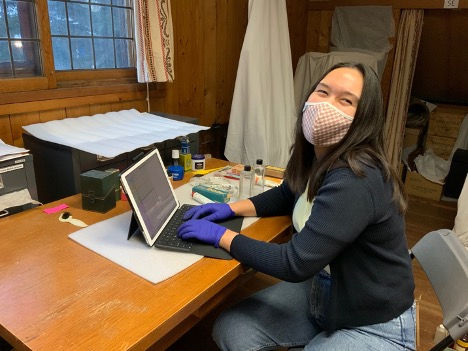
Above: Thea Sleight
As part of my final year in Art History and Museum Studies at the University of
Lethbridge I interned in the curatorial department at the Whyte Museum from September to
December 2020. I’d often begin my mornings at the Whyte Museum with a symptom checklist
and an infrared thermometer to the forehead, before heading to the Whyte Home for the rest of
the day. There, I had my isolated makeshift office set up in the couple’s old studio, where I
catalogued everything from vintage Kodak photography equipment and cute miniature Japanese
figurines, to girdles, and glass cork-top medicine bottles.
Left: Just one layer of miniatures, all catalogued, and wrapped in acid-free tissue for preservation. Right: Miniature ornate dishware. Pen for scale.
Because this was my second collections internship, I was already pretty familiar with the
general cataloguing process, which involves measuring the object, a physical description,
condition reporting, photographing, labelling, housing (giving the artifact a permanent place to
live), and filing of the physical catalogue. Of course I had to learn some new things, like how to
use the Whyte Museum’s cataloguing software, but other than that, it was a similar rhythm I
could fall into.
Above: The upstairs bathroom was left just as it had been when the museum’s founder, Catharine Robb Whyte, lived there. The medicine cabinets were fully stocked with medications, toiletries, and, as seen above, first aid supplies that are very familiar today.
My favourite part, besides the catalogue writing, was working with the artifacts
themselves. Since the house was donated as is, it was like working inside a time capsule! There
were objects I encountered that were familiar, foreign, and some of which I couldn’t even
identify. I saw brand names that still exist today, and others that have since disappeared. It really
made me consider cultural shifts through time, how much we’ve changed, and how much we
really haven’t. I felt like I got to know Peter Whyte and Catharine Robb Whyte through their
possessions, and it made me think about what kinds of conclusions people would draw about me
from my own objects.
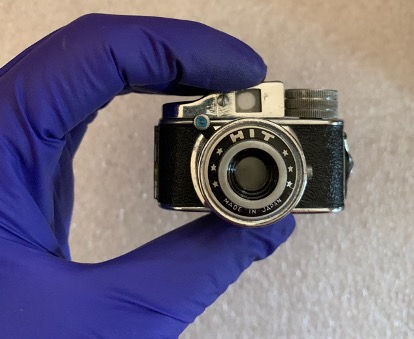
Even though I didn’t get to the experience the Whyte Museum in its true unrestricted
form, I’m still incredibly grateful to have been there. Not only was I was able to see and work
with incredible artifacts and gain practical experience, but I was able to do so safely during these
times. It was a blast!

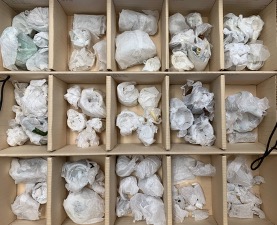
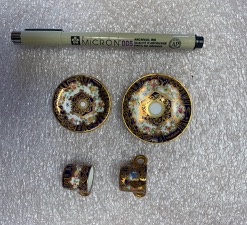
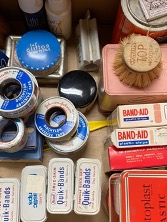
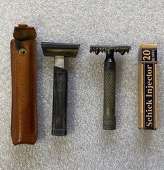
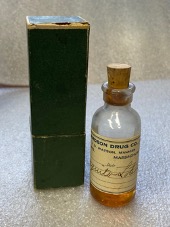
I appreciate the excellent customer service provided by the Pest Control Software team. They have been responsive to our needs and provided us with timely support.